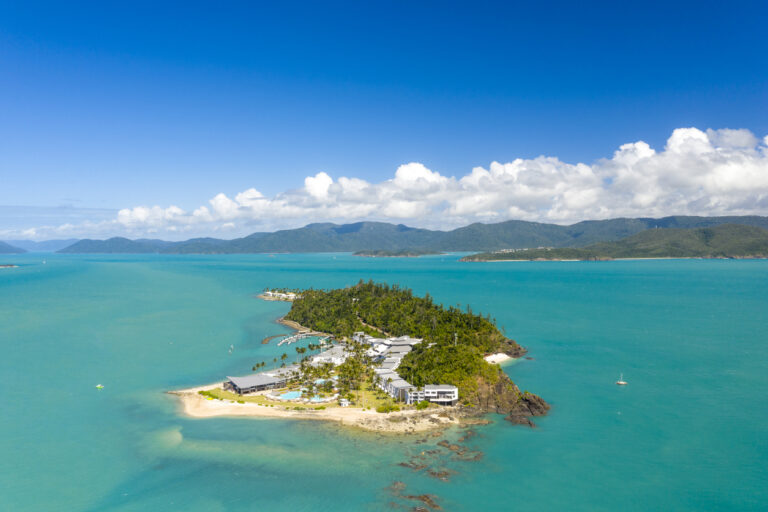Reclaiming Connection, Redefining Opportunity
In the first blog of this series, we explored how countries like Japan and Thailand are taking bold steps to protect what matters most—drawing boundaries around sacred sites and fragile ecosystems so they’re not trampled in the name of tourism.
In the second, I turned the lens inward—towards Moreton Island. What I witnessed there wasn’t just poor behaviour on a whale-watching tour. It was a symptom. A warning sign. A glimpse of what happens when boundaries are erased and short-term gain takes priority over protecting the very things that make this land—and our identity—so extraordinary.
But here’s the truth:
The problem doesn’t stop at the shoreline.
And neither should our response.
The Bigger Picture Is Hiding in Plain Sight
What happened on that boat wasn’t random.
It reflects a deeper pattern quietly reshaping our country:
We’ve allowed too much to slip through our fingers.
Not just sacred spaces—but ownership, stewardship, and identity.
Foreign buyers now hold vast tracts of farmland. Our ports, wharves, and even parts of our critical infrastructure.
Once-vibrant islands like Brampton? Left to decay or quietly controlled from overseas.
We’ve sold access to our minerals, produce, and land—often at a discount—under the promise of prosperity.
This isn’t about being anti–foreign investment.
Investment—whether local or global—can be a force for good. But only when it respects our land, honours our culture, and strengthens the long-term value of what makes this nation extraordinary. Because when we protect what’s sacred, we create something truly worth investing in.
When boundaries aren’t set and values aren’t protected, the consequences aren’t contained to a single beach or business.
Over time, the same pattern plays out at scale.
We’ve seen it in tourism.
We’ve seen it in land purchased only to sit idle or be stripped of local value.
We’ve seen it in leases and sales that hand what’s sacred to overseas interests—sometimes without realising it—until key parts of our country are no longer in our hands.
And where does that leave us?
With fading accountability for how these places are treated or maintained.
With a tourism culture that’s losing its grounding—because no one’s clearly protecting or communicating what matters.
Some visitors arrive with deep respect.
But too many treat our home like a free-for-all—because no one has told them otherwise.
From Whale Hunting to Whale Watching—Have We Forgotten the Lesson?
When my daughter and I stepped onto Moreton Island, the tour operator shared its history. I’d heard it before, but it landed differently this time.
Moreton Island was once a whaling station.
White settlers claimed the land, then turned to the ocean—hunting whales for profit and driving them to the brink.
And yet, today, people travel from around the world to witness these gracious, gentle creatures—alive, thriving, playful.
Why?
Because we eventually learned that protecting them created far greater value than exploiting them.
But now I have to ask—have we forgotten?
Are we making the same mistakes in different clothes, this time with sacred sites, natural wonders, and even tourism itself?
There’s Opportunity in the Risk—If We’re Brave Enough to See It
This isn’t just a story of decline.
It’s a reminder that risk always carries opportunity—if we have the courage to act on it.
Tourism is at a threshold.
We can either choose legacy—or loss.
Australia has a once-in-a-generation chance to redefine what kind of destination we want to be:
- One where our land, oceans, wildlife, and culture are respected—not just consumed.
- One where First Nations voices are central—not tokenised or ignored.
- One where tourism enriches both locals and visitors—without sacrificing sacredness or identity.
But that requires something we’ve too often avoided:
Accountability.
Boundaries.
Vision beyond the next dollar or election cycle.
Redefining What ‘Welcome’ Means
The deeper the connection, the greater the value.
The greater the respect, the safer and more meaningful the experience.
And the more courage we show in setting expectations, the more we protect what we’re proud of:
Our land. Our waters. Our people. Our identity.
If we lead with care, we’ll attract the right kind of visitors—those who want to belong to a place, not just take from it.
Even the poor-behaving ones will eventually adapt—because they’ll have to rise to the standard we set, not drag us down to theirs.
Respect will no longer be optional.
From Risk to Reward: A Generational Opportunity
This isn’t about being anti-tourism.
It’s about being pro-future.
If we keep handing over what’s sacred for short-term wins, we’ll look back and realise we traded something irreplaceable for something shallow.
But if we learn from history—the same way we did with the whales—everyone benefits.
Economically. Environmentally. Emotionally.
And not just for today, but for generations to come.
A Message to Those Ready to Lead Differently
Whether you’re a policymaker, tourism operator, land custodian, or simply someone who loves this country—this is your moment.
We can course-correct.
We can speak up.
We can lead with integrity and imagination.
But only if we stop looking away.
Only if we’re brave enough to ask:
When did tourism stop being about the place?
And what would it take to make it about the place again?
Not performative.
Not exploitative.
But purposeful, powerful, and deeply human.
The kind of tourism that protects the house—and all who call it home.
Want to explore how mindset, leadership, and identity can reshape our future?
Subscribe to:
🔹 Unearth Risk Insights – for leadership grounded in clarity and care
🔹 Risk Rebels: Beyond the Surface – for bold, truth-telling insights that cut through the noise
Risk Rebels – What Say You?




